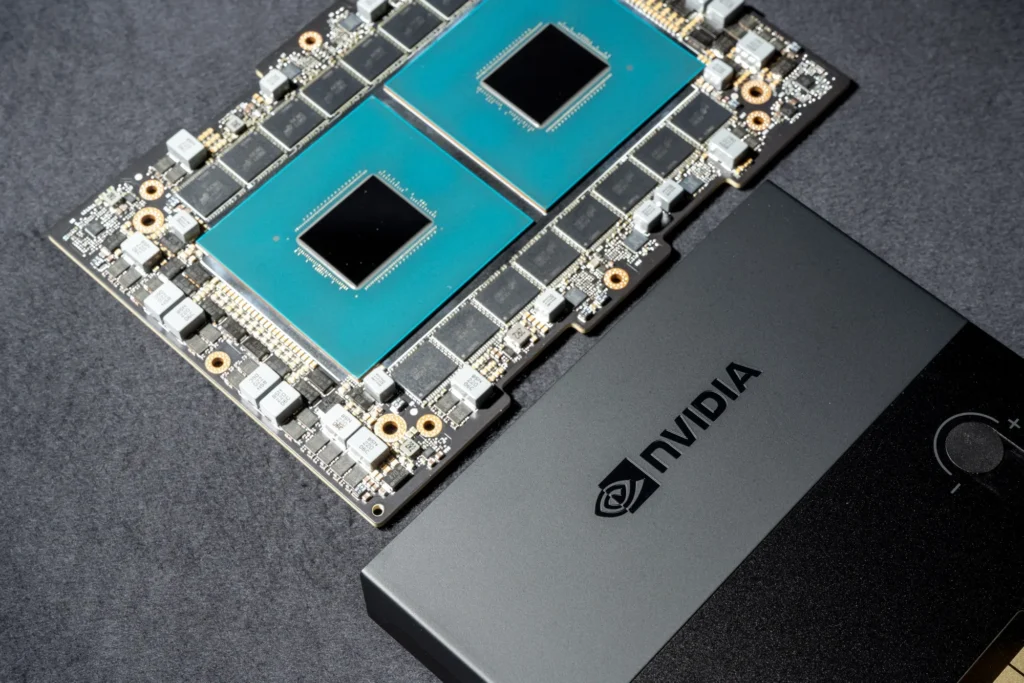The UAE is making significant strides to secure access to advanced U.S. semiconductor technology, reflecting its growing ambitions in the global tech race. With the world increasingly reliant on microchips for everything from smartphones to electric vehicles, the Gulf nation is determined to strengthen its technological standing and diversify its economy.
Why Are Chips So Important?
Semiconductors, or chips, are the backbone of modern electronics. They power devices like computers, medical equipment, and communication systems. Countries with access to advanced chip technology gain a strategic advantage in defense, artificial intelligence (AI), and various emerging sectors.
The demand for chips has surged as new technologies like 5G networks, smart cities, and autonomous vehicles become mainstream. The UAE recognizes the importance of participating in this technological revolution to future-proof its economy.


In recent years, the global semiconductor supply chain has faced disruptions due to geopolitical tensions and the COVID-19 pandemic. This has intensified the race for chip independence, with nations like the UAE seeking to bolster their technological capabilities.
UAE’s Ambitious Vision
The UAE has been proactive in establishing itself as a leader in technology and innovation. Through initiatives like the National Strategy for Industry and Advanced Technology, the country aims to develop its industrial base and become a hub for cutting-edge industries.

Securing access to U.S. chip technology would provide a massive boost to these ambitions. Partnerships with American semiconductor firms could drive research and development, facilitate knowledge transfer, and attract further investment to the region.
Moreover, the UAE’s ambition aligns with its broader economic diversification strategy known as “Operation 300bn,” aiming to boost the industrial sector’s contribution to the GDP. By developing a robust semiconductor industry, the UAE can reduce reliance on oil revenues and foster innovation-driven growth.
Navigating Geopolitical Challenges
While the UAE is eager to collaborate with U.S. tech giants, the process is complicated by global politics. The U.S. has imposed strict export controls to limit China’s access to advanced chip technology, seeking to maintain its competitive edge in the sector.
For the UAE, maintaining strong diplomatic relations with both the U.S. and China is a balancing act. By positioning itself as a neutral and reliable partner, the UAE hopes to secure essential technology while avoiding the risks of geopolitical rivalry.
Additionally, the UAE’s participation in the U.S.-led Chip 4 alliance, comprising the U.S., South Korea, Japan, and Taiwan, could further strengthen its position in the semiconductor supply chain. Such alliances foster knowledge exchange and ensure a stable supply of critical components.
Building Regional Tech Leadership
Beyond chip access, the UAE is making significant investments in developing its own semiconductor ecosystem. The establishment of innovation hubs and research centers has already begun to attract global talent. Additionally, partnerships with key international players could enhance the country’s domestic manufacturing capabilities.
In collaboration with educational institutions, the UAE is nurturing the next generation of engineers and tech professionals. Initiatives to promote STEM (Science, Technology, Engineering, and Mathematics) education are crucial in building a sustainable workforce that can drive semiconductor innovation.
The UAE’s investments in AI, robotics, and autonomous systems are also expected to benefit from advancements in semiconductor technology. This aligns with its broader vision of becoming a global leader in futuristic industries.
Moreover, establishing data centers and chip fabrication facilities would reduce import dependence and provide greater supply chain resilience. The UAE could emerge as a regional semiconductor production hub, serving not only its own needs but also those of neighboring countries.
Economic and Trade Impact
Securing chip technology access would unlock significant economic opportunities. From boosting industrial output to attracting foreign direct investment, the UAE could diversify its revenue streams and reinforce its position as a global trade leader.
The semiconductor industry also has the potential to create high-value jobs, stimulate innovation across sectors, and drive exports. Additionally, by becoming a vital link in the global supply chain, the UAE can leverage its strategic geographic location to strengthen economic ties with both Western and Eastern markets.
What’s Next?
As the UAE continues to pursue access to U.S. chip technology, the world will be watching closely. Success in this endeavor could cement the nation’s status as a technological powerhouse and unlock new economic opportunities.
With a commitment to innovation and strategic partnerships, the UAE’s big bet on chips is set to shape its technological future—and potentially redefine the global tech landscape.
Stay tuned as the developments unfold, and see how this bold move could impact the global semiconductor industry and international trade relations.
Also read: Forget AI! Russia’s Light-Powered Supercomputers Are the Next Big Thing











